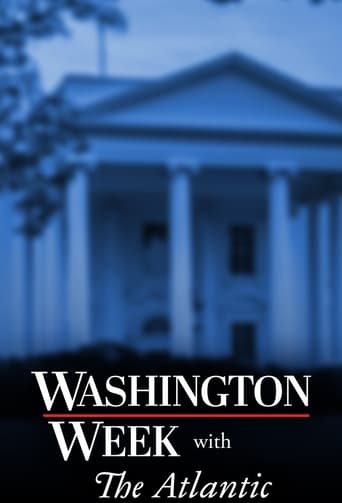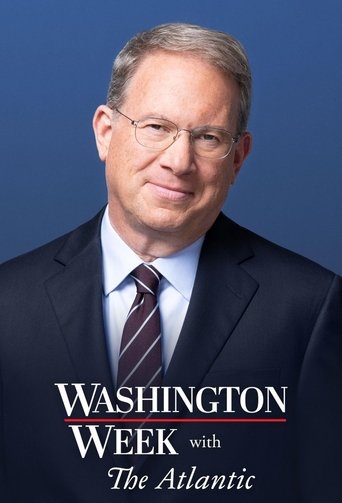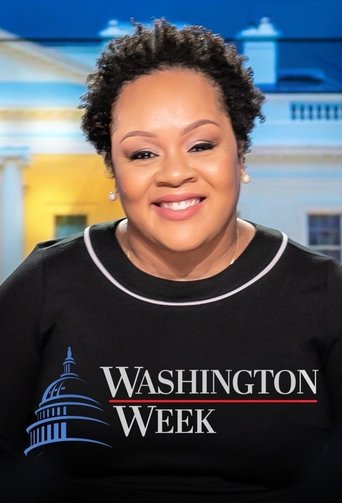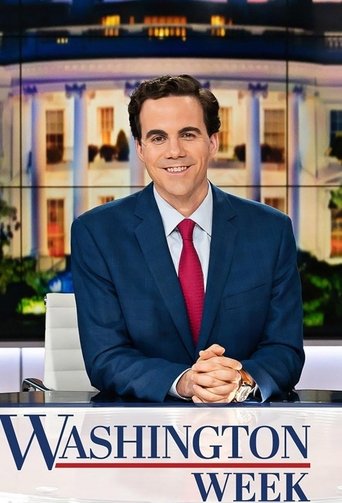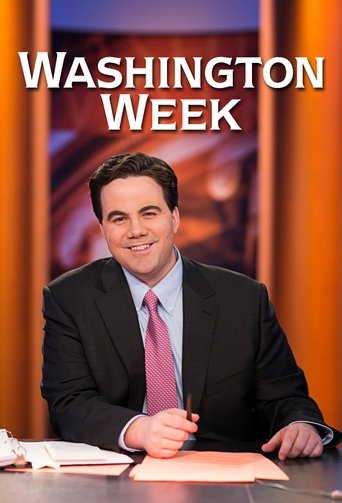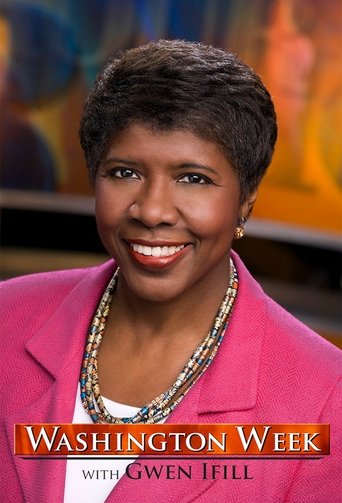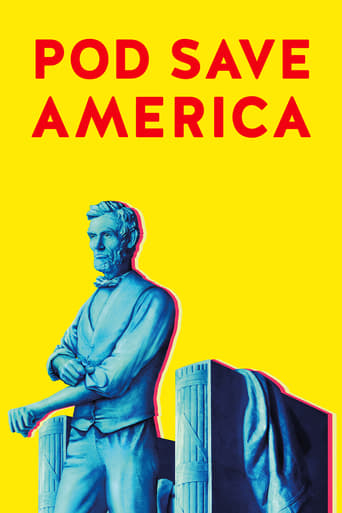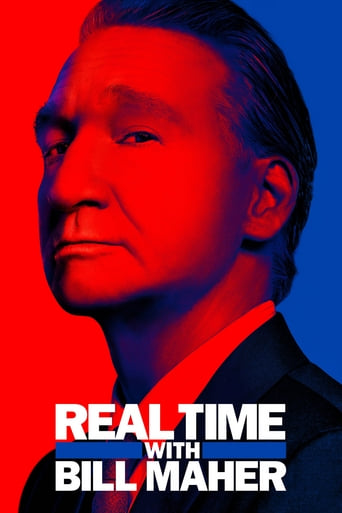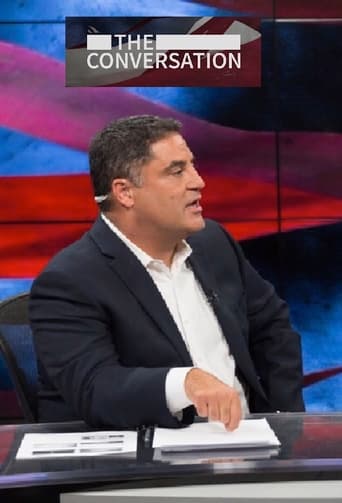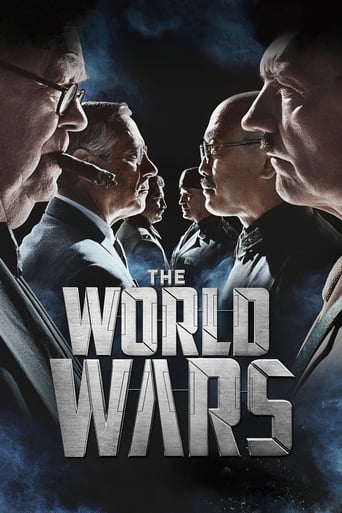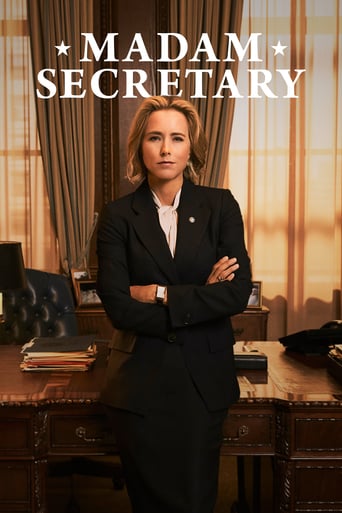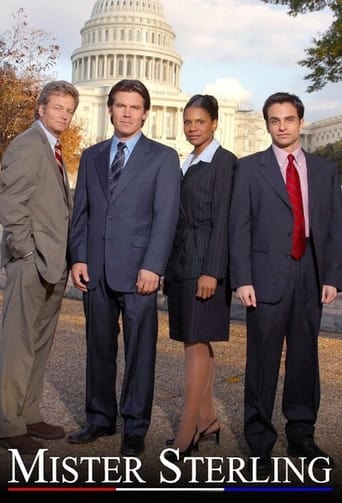Washington Week with The Atlantic Season 52
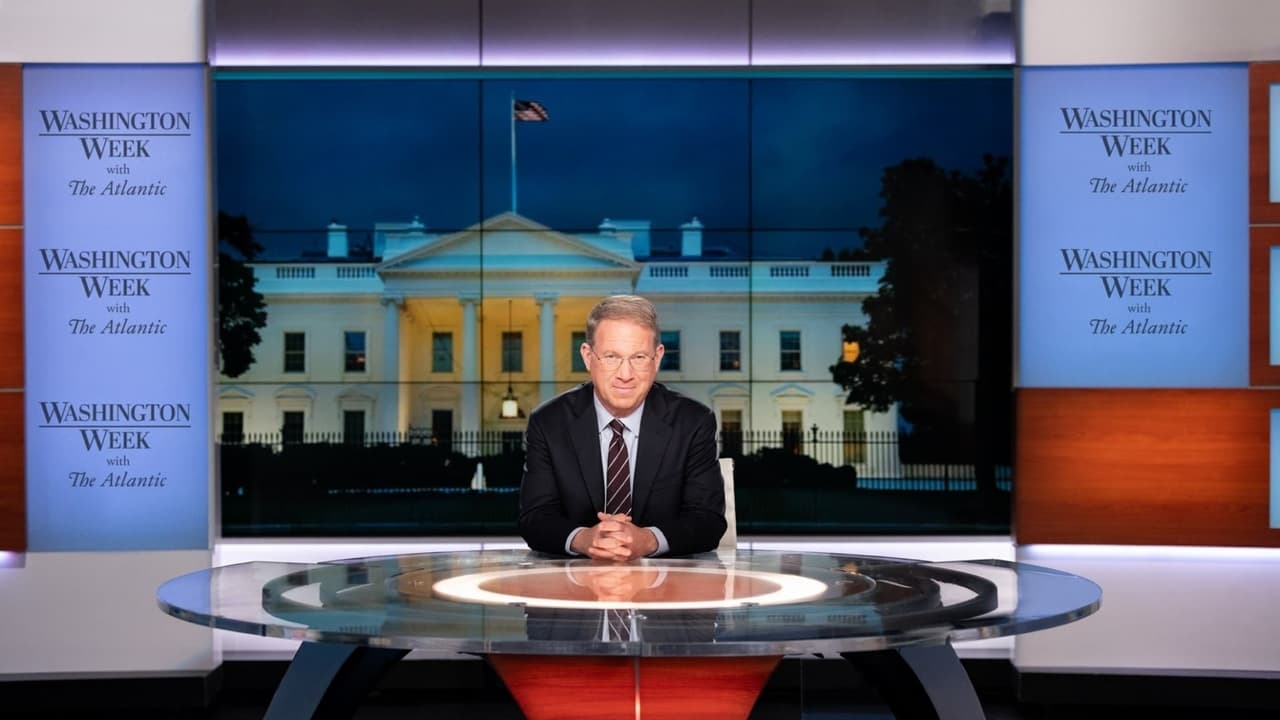
Journalists participate in a round-table discussion of news events in this award-winning public affairs series. It first aired in 1967, making it the longest-running prime-time news and public affairs program on television.
Watch NowWith 30 Day Free Trial!
Washington Week with The Atlantic
1967 / NR
Journalists participate in a round-table discussion of news events in this award-winning public affairs series. It first aired in 1967, making it the longest-running prime-time news and public affairs program on television.
Watch Trailer
With 30 Day Free Trial!
Washington Week with The Atlantic Season 52 Full Episode Guide
Staff shakeups hit the White House Friday. Press secretary Sean Spicer resigned, and Anthony Scaramucci was introduced as President Trump's new communications director. The roundtable also looked back on the first six months of the administration, highlighting the achievements and setbacks.
President Trump's son Donald Trump Jr. released emails detailing a June 2016 meeting with a Russian attorney, and the White House entered crisis mode to contain the fallout. While the president publicly defended his son, Republicans and Democrats on Capitol Hill were critical of the response and continue investigations into possible collusion. Plus, Senate Republicans unveiled their revised plan to repeal and replace the Affordable Care Act, but Majority Leader Mitch McConnell already faces pushback from his own party.
President Trump met with Russian President Vladimir Putin during the G20 Summit in Germany. Trump pressed Putin about Russia's role in meddling in the U.S. presidential election which Putin denied doing. How is Trump reshaping American foreign policy six months after taking office? And how does the global community view the new president?
As Senate Majority Leader Mitch McConnell struggles to find 50 Republican 'yes' votes for health care reform, he has delayed a vote on his plan to repeal and replace the Affordable Care Act until after the July 4 recess. McConnell will unveil an updated bill on Friday that he hopes will appease both conservative and moderate members of his caucus. How does the revised Senate bill compare to the status quo under Obamacare? And how will people across the country be impacted by any proposed reforms? Robert Costa will discuss the policy and consequences of health care reform with: Sarah Kliff of Vox Nancy Cordes of CBS News Michael Scherer of TIME Magazine Yamiche Alcindor of The New York Times
After weeks of behind-the-scenes discussions, Senate Republicans unveiled their plan to repeal and replace the Affordable Care Act. The Better Care Reconciliation Act authored largely by Majority Leader Mitch McConnell rolls back many requirements included under President Obama's signature healthcare plan. The Senate plan would: - Phase out the Medicaid expansion to low-income Americans - Provide smaller subsidies for insurance plans that offer less coverage - Repeal the individual mandate requiring Americans to buy insurance - Allow states to opt out of requiring certain essential health benefits like maternity care and mental health treatment In addition to Democrats, who are in lock-step opposition to the GOP Senate health care bill, four conservative Republican senators have rejected the plan calling it "Obamacare light." Sens. Rand Paul (KY), Ron Johnson (WI), Ted Cruz (TX) and Mike Lee (UT) released a joint statement saying they're "not ready to vote for this bill." The Senate plan is similar to the American Health Care Act passed by the House last month. President Trump touted its passage in a Rose Garden ceremony but recently has called it "mean" and "cold-hearted." Trump tweeted his support for the Senate bill late Thursday. All of the debate is racing towards a vote next week before the July 4th Congressional recess. McConnell’s schedule leaves little time for public debate or amendments. The Congressional Budget Office will release its score of the bill next week. Robert Costa will explore the details of the Republican prescription for health care and the real-world impact with: Sarah Kliff of Vox Susan Davis of NPR Philip Rucker of The Washington Post Kelly O'Donnell of NBC News
Every once in a while, one moment makes Washington pause. Partisanship melts away, if only for that brief moment. This week it was a charity baseball game, an annual tradition that pits Republicans and Democrats against each other for a good-natured competition and America’s favorite pastime. Everything changed early Wednesday morning when a gunman opened fire on the Republican team practicing on a suburban field. Rep. Steve Scalise, the number three Republican in the House of Representatives, was critically injured along with four others. As the game goes on and Washington returns to its usual squabbles, the investigation into Russian meddling in the presidential election has expanded to include President Trump. Special counsel Robert Mueller is reportedly looking into whether Mr. Trump obstructed justice in the Russia case after firing FBI Director James Comey. Just one day after the shooting when Trump praised all the public servants working in government, the president took to Twitter to bemoan the “very bad and conflicted people” investigating him. On Wednesday the Senate voted 97-2 to restrict the president’s ability to roll back sanctions to punish Russia for interfering in the 2016 election. What does this unusual week tell us about civility, credibility and trust in Washington? Robert Costa will discuss with: Alexis Simendinger of Real Clear Politics Jeff Zeleny of CNN Erica Werner of the Associated Press Geoff Bennett of NPR Adam Entous of The Washington Post
Fired FBI Director James Comey accused President Trump of telling “lies, plain and simple” during testimony before the Senate Intelligence Committee. Trump responded by calling Comey a “leaker” and denied any collusion between his campaign and Russia. The president said he would “100 percent” talk to special counsel Robert Mueller under oath. How did the relationship devolve to this point?
resident Trump announced that the U.S. would withdraw from the Paris climate accord, the historic 2015 agreement that commits nations to cut greenhouse gas emissions, and seek to renegotiate a new deal that's "fair" for the American people. The United States, the world’s second-largest greenhouse gas emitter, will join just two other nations – Nicaragua and Syria – to reject the climate change deal. Thursday's announcement is a campaign promise kept for the president who called climate change a "hoax." Global leaders urged him to reconsider during his overseas trip last week, and Trump's decision will raise questions about the U.S. role on the world stage. With the United States signaling its intention to withdraw and renegotiate, will other nations follow? Inside the White House, the decision pitted White House staffers against each other. EPA Administrator Scott Pruitt and adviser Stephen Bannon argued urged Trump to abandon the Paris agreement because it led to job losses. Secretary of State Rex Tillerson and daughter Ivanka Trump joined environmental groups and corporate executives who believed the president should keep the U.S. commitment. Robert Costa will discuss President Trump's decision to exit the Paris Accord and the global ramifications with: Michael Scherer of TIME Magazine Indira Lakshmanan of The Boston Globe Jonathan Swan of Axios
The federal investigation into Russian meddling in the U.S. presidential election reached President Trump’s innermost circle Thursday. The Washington Post reported that the president’s senior adviser and son-in-law Jared Kushner is a focus of investigations and officials believe he has information relevant to their ongoing probe into potential ties between the Trump campaign and Russia. Kushner has not been accused of wrongdoing, but he is now the only current White House official considered key to the investigation. The FBI is still interested in former Trump campaign chairman Paul Manafort and former National Security Adviser Michael Flynn. Congressional inquiries continue to move ahead as well. Fired FBI Director James Comey is set to testify next week. Earlier this week, former CIA Director John Brennan testified about interactions between the Trump campaign and Russia – but stopped short of calling it collusion. All this is unfolding as the president is wrapping up his first foreign trip. At the NATO summit, Trump was forced to mend fences with British Prime Minister Theresa May after the UK stopped sharing intelligence about the recent terror attack with the United States. Robert Costa will get an update on stories from Washington to Italy with: Peter Baker of The New York Times Vivian Salama of the Associated Press Erica Werner of the Associated Press
Donald Trump is facing the harsh reality of being president just 118 days into his administration. The plume of scandals emanating from the White House grew larger each day this week as Trump continues to push back against investigations into Russia's meddling in the U.S. presidential election and possible ties to his campaign. The uproar that started with the firing of FBI Director James Comey last week intensified with the revelation of memos Comey wrote that said Trump asked him to end the inquiry into former national security adviser Michael Flynn. By Thursday, the president used Twitter (link is external) to call the appointment of a special prosecutor to oversee the Russia investigations a "witch hunt." Democrats and Republicans on Capitol Hill are publicly committed to continue their own investigations. While more Democrats openly discuss impeaching the president, Republicans are starting to distance themselves from the Trump administration. Robert Costa will make sense of another busy week in Washington with: Julie Hirschfeld Davis of The New York Times Alexis Simendinger of Real Clear Politics Michael Scherer of TIME Magazine Manu Raju of CNN
Two words that have been central to President Trump's persona for more than a decade sent shockwaves through Washington this week: "You're fired." Lawmakers are grappling with the consequences of the abrupt removal of FBI Director James Comey and what it may mean for the continuing investigations into Russia's meddling in last year's presidential election. Democratic senators are calling for a special prosecutor to investigate ties between Trump's campaign and Russian officials. The acting FBI director told the Senate Intelligence Committee that the bureau's probe will continue and that the White House has not tried to impede the inquiry. Robert Costa will explore the fallout of Trump’s decision to fire the FBI director with: Pete Williams of NBC News Margaret Brennan of CBS News Erica Werner of the Associated Press Dan Balz of The Washington Post
This was the week Congress got busy. Republicans in the House performed life-saving measures to revive their long-promised plan to replace Obamacare weeks after their original replacement bill fell short. The recrafted measure does not require people to have health insurance, rolls back state-by-state expansions of Medicaid, and includes $8 billion to help cover people with pre-existing conditions. Health care industry groups including the American Medical Association and the American Cancer Society oppose the bill and its likely to encounter hurdles when it is debated by the Senate. The health care win came just days after Congress reached a bipartisan budget deal to fund the government through the end of September. The $1.1 trillion spending bill increases defense and border security funding but does not include money to pay for President Trump’s border wall. Despite the compromise, Trump suggested the need for a “good ‘shutdown’ in September” to get more Republican spending priorities. Robert Costa goes behind-the-scenes in the halls of Congress and the White House to understand the negotiations and impact of this consequential week with: Ed O’Keefe of The Washington Post Erica Werner of AP Peter Baker of The New York Times Molly Ball of The Atlantic
President Trump is reaching the end of his first 100 days in office. The president is learning on the job that governing isn't as easy as he thought it would be. The White House spent the week scrambling for last-minute executive action on trade and tax reform, but Congress is continuing to debate the future of health care. Plus, the one story that has dominated Trump's time in office took a new turn this week as ousted National Security Adviser Michael Flynn faced a new investigation about foreign money he accepted.
President Trump is nearing the 100-day mark of his presidency and Congress is set to return from a two-week recess.
President Trump changes his tune on Russia, China and NATO.
The U.S. military fired 69 cruise missiles at targets in Syria.
Former National Security Adviser Michael Flynn is willing to testify about the Trump campaign’s connection to Russia in exchange for immunity. So far there are no takers, but the Senate Intelligence Committee held its first public hearing about Russian meddling in the U.S. election. The House investigation is stalled after new questions about the source of information for the Republican chairman. Meanwhile, the Trump administration is trying to recover from the failure of the Republican health care bill, and the president is threatening to “fight” the Freedom Caucus.
Republicans cancel planned vote on health care after failing to get the votes to pass it.
Trump doubles down on claims Obama wiretapped Trump Tower despite no evidence found by Congress.
House Republicans unveiled their long-promised plan to replace the Affordable Care Act, but the bill faces growing opposition from Democrats and Republicans as well as health care stakeholders. President Trump placed his weight fully behind the bill and tried to convince wary Republicans to support their campaign promise. Meanwhile, Trump accused his predecessor of wiretapping his campaign, and WikiLeaks released thousands of CIA documents that revealed secrets about the agency’s ability to spy on personal information through phones, computers and televisions.
Sessions recuses himself from investigations into Russia's meddling in the election.
President Trump riled up conservative voters in a fiery speech at CPAC Friday where he took on his favorite foil -- the press. After one month in the Oval Office, is Trump changing the core of the Republican Party? All week long Republican lawmakers have seen voter frustration up close in boisterous town hall meetings across the country as voters upset about the Affordable Care Act confront Congress directly. From immigration to transgender bathroom rights to rising anti-Semitism, the culture wars are heating up in America's heartland.
The president held his first solo news conference.
The 9th Circuit rejects Trump bid to reinstate travel ban.
The panel reports on the new world order of the Trump administration and the influencers jockeying for power inside the White House.
What does Trump's first week in office say about his leadership style and America's place on the global stage?
Donald Trump was sworn in as the 45th president, laying out a dark vision for America.
President-elect Trump's praise of Putin has cast a cloud over his transition.
U.S. intelligence agencies tell the president-elect Russia was behind election-related cyberattacks.
Free Trial Channels
Seasons


